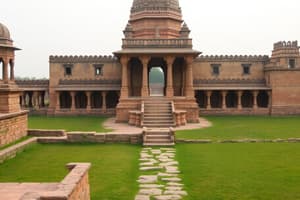Podcast
Questions and Answers
What term describes Dutch settlers in Africa?
What term describes Dutch settlers in Africa?
- Raj
- Sepoys
- Boers (correct)
- Shaka
What are Sepoys?
What are Sepoys?
Indian soldiers
Who was Menelik II?
Who was Menelik II?
Ethiopian emperor who resisted the Europeans
Who was Liliuokalani?
Who was Liliuokalani?
What does paternalism refer to?
What does paternalism refer to?
What is assimilation?
What is assimilation?
What is racism?
What is racism?
What does geopolitics involve?
What does geopolitics involve?
What is the Pacific Rim?
What is the Pacific Rim?
Who was Shaka?
Who was Shaka?
What is imperialism?
What is imperialism?
What is the Suez Canal?
What is the Suez Canal?
What is social Darwinism?
What is social Darwinism?
What does Raj refer to?
What does Raj refer to?
Flashcards
Boers
Boers
Dutch settlers who established colonies in South Africa, involved in conflicts with indigenous peoples.
Sepoys
Sepoys
Indian soldiers in the British Army, crucial in the Sepoy Mutiny of 1857.
Menelik II
Menelik II
Emperor of Ethiopia who resisted European colonization and won the Battle of Adwa in 1896.
Liliuokalani
Liliuokalani
Signup and view all the flashcards
Paternalism
Paternalism
Signup and view all the flashcards
Assimilation
Assimilation
Signup and view all the flashcards
Racism
Racism
Signup and view all the flashcards
Geopolitics
Geopolitics
Signup and view all the flashcards
Pacific Rim
Pacific Rim
Signup and view all the flashcards
Shaka
Shaka
Signup and view all the flashcards
Imperialism
Imperialism
Signup and view all the flashcards
Suez Canal
Suez Canal
Signup and view all the flashcards
Social Darwinism
Social Darwinism
Signup and view all the flashcards
Raj
Raj
Signup and view all the flashcards
Study Notes
Key Historical Terms
- Boers: Refers to Dutch settlers who established colonies in South Africa, significant in the context of colonialism and conflict with indigenous populations.
- Sepoys: Indian soldiers who served in the British Army during the colonial period, particularly noted for their role in the Sepoy Mutiny of 1857.
- Menelik II: The emperor of Ethiopia known for successfully resisting European colonization, particularly notable for his victory at the Battle of Adwa in 1896.
- Liliuokalani: The last monarch of Hawaii, who attempted to implement a new constitution in 1893 but was overthrown by American interests.
Concepts of Colonialism and Culture
- Paternalism: A colonial policy that involves providing for people’s needs while denying them their rights, commonly implemented by colonial powers in their territories.
- Assimilation: The process by which a smaller culture is absorbed into a larger culture, often enforced by colonial powers in their colonies.
- Racism: The belief in the superiority of one race over others, often justified colonial actions and segregationist policies during imperial expansions.
Geopolitical and Strategic Dynamics
- Geopolitics: Strategic acquisition of land by nations for political or military advantages, significant in the context of imperial competition among European powers.
- Pacific Rim: Refers to the countries in Southeast Asia bordering the Pacific Ocean, which became areas of interest for imperial powers in the late 19th and early 20th centuries.
Notable Figures and Events
- Shaka: Zulu chief known for uniting various tribes under his rule and establishing a powerful Zulu nation through military innovation and tactics.
- Imperialism: The practice of a stronger nation taking over a weaker country, fundamentally shaping global political dynamics in the 19th and early 20th centuries.
- Suez Canal: An essential waterway connecting the Red Sea to the Mediterranean Sea, opened in 1869, which became a crucial route for trade and military movements.
- Social Darwinism: Application of Darwinian concepts of natural selection to social, political, and economic issues, often used to justify imperialism and inequality.
- Raj: Refers to the period of British rule in India from 1858 to 1947, marked by significant cultural, political, and economic changes in the subcontinent.
Studying That Suits You
Use AI to generate personalized quizzes and flashcards to suit your learning preferences.




